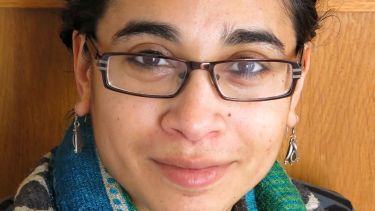Digital Society Network
Annual Lectures
May 2024
Annual Lecture: How UK EdTech policy fails to protect children's rights in the digital society
Professor Sonia Livingstone (LSE), one of the UK's foremost experts into children and young people's media literacies and rights, will deliver the DSN Annual Lecture.
Register your attendance here:
14 May 2024
March 2022
Annual Lecture: Covert Influence: How Undisclosed Election Campaigns on Digital Media Steal American Democracy
Prof. Young Mie Kim (University of Wisconsin-Madison, USA) will deliver the DSN Annual Lecture on the topic, Covert Influence: How Undisclosed Election Campaigns on Digital Media Steal American Democracy.
23 March 2022 (online)
February 2021
The Contagion of Stigmatization : Racism and Discrimination in the “Infodemic” Moment
, Associate Professor, University of Massachusetts
Wednesday 10th February, 4pm – 5.15pm
Please use to join the event.
This talk discusses the “secondary contagion” of racism (Chen et al 2020) and other forms of social stigmatization unleashed by the coronavirus outbreak in global context. I begin with a critique of how cultural biases in journalistic reporting and official speech have often reinforced racial prejudices and hierarchies and contributed to the stigmatization and shaming of marginalized communities. I then identify the intentional media manipulation practiced by politicians and authoritarian governments targeting vulnerable groups, opportunistically using fears of the virus and fears of "fake news" to seize political control. Drawing on my own ethnographic work and policy engagement in the Southeast Asian disinformation space, I discuss challenges of moderating and mitigating online expressions which crossover from disinformation to racist speech. I end with a reflection on how scholars conducting risky research can better support each other, manage the mental health impacts of research in COVID times, and develop new tools for community solidarity and allyship.
Biography
is Associate Professor of Global Digital Media at the University of Massachusetts - Amherst. His research on the in uses to understand the of disinformation producers. Currently, he is Research Fellow at the Technology and Social Change Project at the Shorenstein Center, Harvard Kennedy School, which houses his current project on conspiracy theories in alternative spirituality online communities.
December 2019
Data Power and Counterpower with Chinese characteristics
Professor Jack Qiu, Chinese University Hong Kong
For more than six decades, actors in the People's Republic of China (PRC) have dreamed of and invested in various cybernetic futures: Maoist or neoliberal, postsocialist or postcapitalist. Yet, most of these dreams ended up in vain. The latest attempt of technological buildup, epitomized by the dispute centered on Huawei, seems to suggest that China has become a global "AI superpower" with sufficient prowess to challenge American dominance and the supremacy of Silicon Valley. From a historical and critical perspective, this talk questions the bi-polar elitist framework of China vis-a-vis the US by introducing the internal complexities of the Chinese data systems, particularly along the fault line of social class. The argument is that formations of data counterpower in China are diverse and dynamic, both on- and offline, within China proper and beyond. While Chinese data power routinely responds to external vectors (e.g., Silicon Valley, Wall Street), it is likely that its ultimate fate will hinge upon issues of domestic in/security and exceptional historical moments of internal structural realignments, as observed in the history of PRC since the 1950s.
Biography
is Professor at School of Journalism and Communication, the Chinese University of Hong Kong, where he directs the Centre for Chinese Media and Comparative Communication Research (C-Centre) and co-directs the Centre for Social Innovation Studies at the Hong Kong Institute of Asia-Pacific Studies. His research focuses on information and communication technologies (ICTs), social class, globalisation, and social change. He is an elected Fellow of the International Communication Association (ICA) and recipient of the C. Edwin Baker Award for the Advancement of Scholarship on Media, Markets and Democracy in 2019.
He has published more than 100 research articles and chapters and 10 books in both English and Chinese including (U of Illinois Press, 2016), World Factory in the Information Age (Guangxi Normal U Press, 2013), and (MIT Press, 2009). His work has been translated into German, French, Spanish, Portuguese, Japanese, and Korean.
He has served on the editorial boards of 14 academic journals, including six indexed in the Social Science Citation Index. He works with grassroots NGOs and provides consultancy services for international organisations, while serving as the President of Chinese Communication Association (CCA) since September 2019.
*** This lecture was cancelled due to strike action ***
November 2018
Does the High-Tech Future Need Workers?
Dr Gina Neff, Oxford Internet Institute
New types of data and unprecedented scales of analysis are changing work and organisations in fundamental ways. Under labels like ‘the fourth industrial revolution’ and ‘the second machine age,’ these changes reflect enormous efforts to digitise sectors, from government to health care to education to manufacturing to business services, and they represent enormous potential disruption to work and workers. To see the future of work, I argue that we should look to the past, to how people have integrated new technologies and new data into their work. One place to look is at the gap that anthropologist Lucy Suchman described between the technologically designed logic of ‘plans’ built into computerised systems and the localised ‘situated actions’ that people take that draw extensively on their knowledge of the context, their experiences, and the evolving environment around them. This talk will use that theory to examine three cases of digital transformation at work, in health care, media and construction sectors. I will show how workers respond and adapt to new forms of data-intensive work and how they use data to modify the structures and systems of their workplaces. In their everyday practices, we see two possible paths for the future of work. Which path society proceeds down will depend on choices, policies and actions that we as citizens and workers can help shape now.
Biography
is a Senior Research Fellow and Associate Professor at the Oxford Internet Institute and the Department of Sociology at the University of Oxford. She studies the future of work in data-rich environments. She is an expert on technological disruption across several different industries including health care, media, and construction. She has published three books and over four dozen research articles on innovation and the impact of digital transformation. Her most recent book, , co-authored with Dawn Nafus (MIT Press, 2016), focuses on the practices and politics of using consumer technologies to track health and other everyday personal metrics. Her book (MIT Press, 2012) about the rise of internet industries in New York City won the 2013 American Sociological Association Communication and Information Technologies Best Book Award. She leads a new project on Data Diversity that studies the challenges of using artificial intelligence for decision making. Her research on large-scale building architecture and construction examines how new information and communication technologies require new ways of working and the challenges of implementing these changes at an industrial scale. She holds a Ph.D. in sociology from Columbia University, where she remains a faculty affiliate at the Center on Organizational Innovation. Professor Neff has held faculty and research appointments at the University of Washington, University of California, San Diego and University of California, Los Angeles. She has had fellowships at the Institute for Advanced Study and Princeton University’s Center for Information Technology Policy. Her writing for the general public has appeared in Wired, Slate and The Atlantic, among other outlets.
October 2017
New media, old inequalities: Approaching youth, creative politics and digital media across social class, gender and geography
Dr Shakuntala Banaji, London School of Economics
Over the past seventeen years my research around young people, politics and creativity has interrogated the role and affordances of new and emerging digital media in processes of social change. From refugee children connecting with their peers across Europe through ICQ chat in 2002, through youth activists in Europe and India deploying social media in politically progressive or retrograde ways, to young female gamers in the MENA region selectively hiding and revealing their gender via avatars and play talk during MMOGs, one common thread has been the ways in which digital media creates spaces for new politics and new agencies whilst also hiding or entrenching structural inequalities. But to what extent are we simply doing the digital wrong? Could its technical affordances be used to overcome systematic hierarchies, at least online? Do its social affordances simply enhance the agency of particular social classes in the global south? And are there ways in which the narrative of the digital in liberation politics has become yet another enemy of those seeking deeper social structural transformation? My lecture will attempt to answer these questions in the context of findings from several major comparative research projects in Europe, the Middle East and North Africa over the past decade.
Biography
is Associate Professor and Director of Graduate Studies in the Department of Media and Communications at LSE. She is Programme Director for the Master’s in Media, Communication & Development and teaches about world cinema, audiences, international media and the global south. She is Principal Investigator on the ‘Personalised Media and Participatory Culture’ project and UK project director for the Horizon 2020 CATCH-EyoU project. Ongoing research addresses the intersection between socio-political contexts, old and emerging media, identities and participation, with a focus on the lives of children and young people in different geographical and class contexts. Her publications include (Palgrave 2006), (Anthem Press, 2010), (MIT Press, 2013) and (Routledge, 2016). More information ca be found on her .
September 2016
Doing digital media research over time and across platforms: Lessons from studies of YouTube, Twitter and games culture
Professor Jean Burgess, Director of the Digital Media Research Centre (DMRC) at Queensland University of Technology, Australia.
Contemporary digital media and communication scholars use methods that both critically interrogate the digital media technologies or platforms that mediate cultural participation and public communication and are grounded in the digital traces that such activities leave behind. Because of this dual focus on sociotechnical critique and digital methods, the sociocultural aspects and technologies of both media and methods have significantly and productively transformed each other. But there remain significant challenges, not least among which are the difficulties of studying public communication and cultural participation across platforms and the challenges of engaging with the ways that ephemeral and proprietary digital media platforms change over time. In this talk, I discuss these challenges and illustrate them through three recent and ongoing projects.
First, I provide a narrative of YouTube's transformation from relatively underdetermined video-sharing service to major, multilevel media platform. In doing so, I reflect on my early empirical study of YouTube's most popular videos and the impossibility of repeating it now. Second, I outline the ‘platform biography’ approach (jointly developed with Nancy Baym) as a way to study platforms as they change over time. In this case I tell the story of Twitter’s oldest key features: the @reply, the #hashtag, and the Retweet, showing how they act as mediators between multiple media ideologies, individual human desires, and business logics, as they co-evolve throughout the history of the platform. Third, I draw on a recent case study of the controversy around an episode of Law and Order: SVU around violence in videogame culture to demonstrate the necessity and challenges of tracking public controversies across digital media platforms, especially in the context of 'born digital' controversies bound up with the cultural politics of the internet itself.
Biography
is Professor of Digital Media and Director of the Digital Media Research Centre (DMRC) at Queensland University of Technology in Brisbane, Australia. Her research focuses on the uses, cultures and politics of social and mobile media platforms, as well as new digital methods for studying them. Her co-authored and edited books include (Polity Press, 2009), (Routledge, 2012), (Wiley-Blackwell, 2013), and (Peter Lang, 2014). Over the past decade she has worked with a government, industry and community-based organisations to address the practical challenges and opportunities posed by digital and social media.





